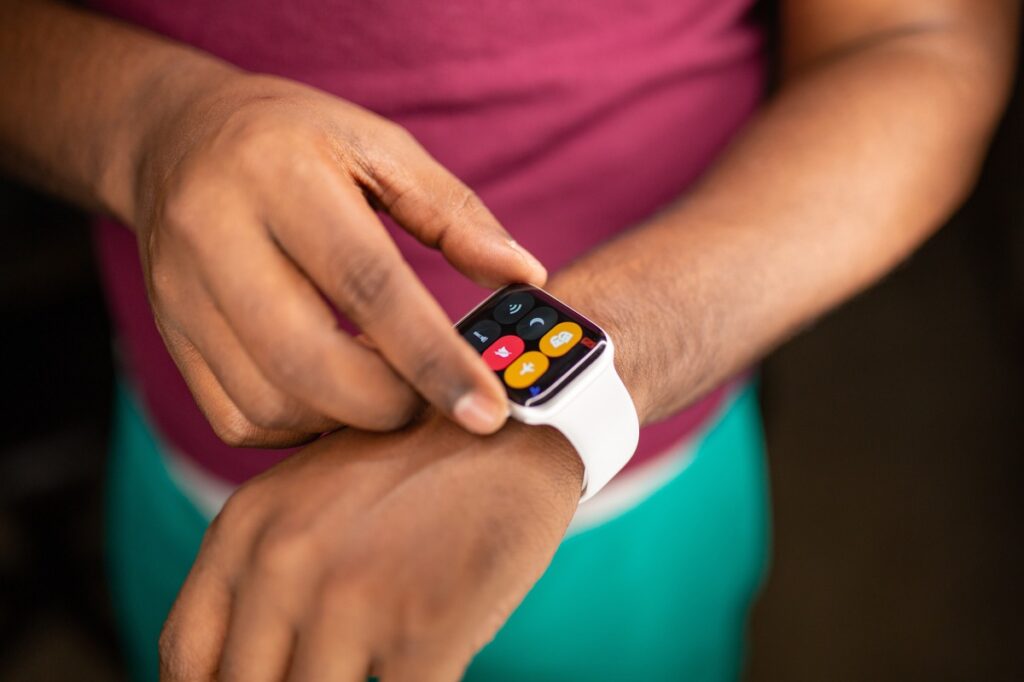
That’s right. It’s yet another article about how artificial intelligence (AI) is changing our lives and the world around us. Regardless of industry, you’re likely seeing headlines on how AI is expected to impact your field daily. The team at FoodMinds is, of course, closely watching the impacts on communications and public relations, but did you know AI is making an impact on nutrition science, too? In fact, AI’s use in nutrition research has the potential to reveal new perspectives and possibilities for advancing scientific understanding in the field of nutrition research.
Here are five ways nutrition scientists are leveraging AI in their research to drive discovery and innovation:
Nutritional Phenotyping
Depending on the source, there’s anywhere from 90,000 to more than 300,000 digital health apps available globally collecting health data on individual users. Researchers can use this data to create profiles – or phenotypes – that can then be used to develop better health predictions or more personalized nutrition interventions. Some researchers are incorporating this data to help improve their study design or to better understand the variations that exist between individuals. Health tech companies like Heali and Zoe are already leveraging AI to provide consumers with personalized nutrition advice based on their individual health metrics.
Disease/Health Outcome Prediction
Using AI to predict risk of disease before any symptoms present has the potential to drastically improve human health and preventive care, while reducing costly medical labs. For example, mammograms are anywhere from 80-90% accurate at testing for breast cancer. Yet some researchers have found AI algorithms that can predict breast cancer risk in women with up to 98% accuracy. There’s still work to be done in this area that includes the development of high-quality datasets and testing the accuracy of various algorithms, but the early stages of this research show a lot of promise for better and more impactful, individualized preventive care.
Microbiome Research
There are more than 100 trillion microbial cells in the human microbiome that influence our physiology, metabolism, nutrition, and immune function. It would be impossible for any human to analyze the amount of data that comes from studying the microbiome, but researchers can use AI to identify links between the composition and function of the microbiome and specific diseases, which can, in turn, lead to developing predictive models for personalized therapeutic interventions or disease interception.
Food Composition and Bioactive Analysis
Bioactives – the nutrients and non-nutrients in the food matrix that produce physiological effects beyond their nutritional properties – are all the rage right now. While there are millions of potential bioactives in our food supply, fewer than 1% have been mapped to human health benefits. This presents the perfect opportunity to utilize AI to help uncover potential patterns and links that can be further explored and confirmed via clinical trials.
Food Safety and Analysis
Finally, AI is being used to improve food safety measures throughout the supply chain. Both the Food and Drug Administration and the U.S. Department of Agriculture are leveraging AI technology to support their public health initiatives. From image analysis and sensor readings to genomic sequencing and environmental, the use of AI in food safety can further protect consumer health, reduce food recalls and minimize costly interventions or lawsuits.
AI provides huge opportunities for advancing health and nutrition research. With the ability to analyze more complex data and find patterns in large datasets, we’re sure to see an incredible increase in scientific discovery over the next decade. Of course, the limitations of AI in nutrition research can’t be overlooked. As with all research, the data output is only as good as the data input – and there is a lot of bad data out there. The National Institutes of Health and other organizations, like the AI Institute for Next Generation Food Systems, are working on compiling or developing high-quality datasets for use by the research community at large. Still, critical issues must be addressed, including the lack of data from underrepresented groups, potential bias in algorithms, and ethical concerns related to data privacy.
Interested in learning more? Feel free to connect with us.
Bree Flammini is a Senior Vice President at FoodMinds, a division of Padilla, in our Chicago office.